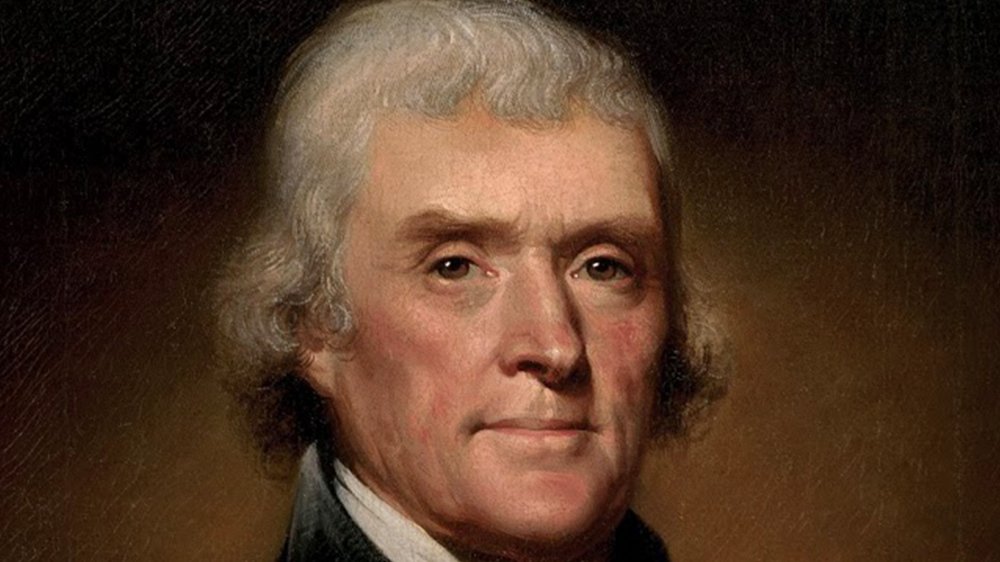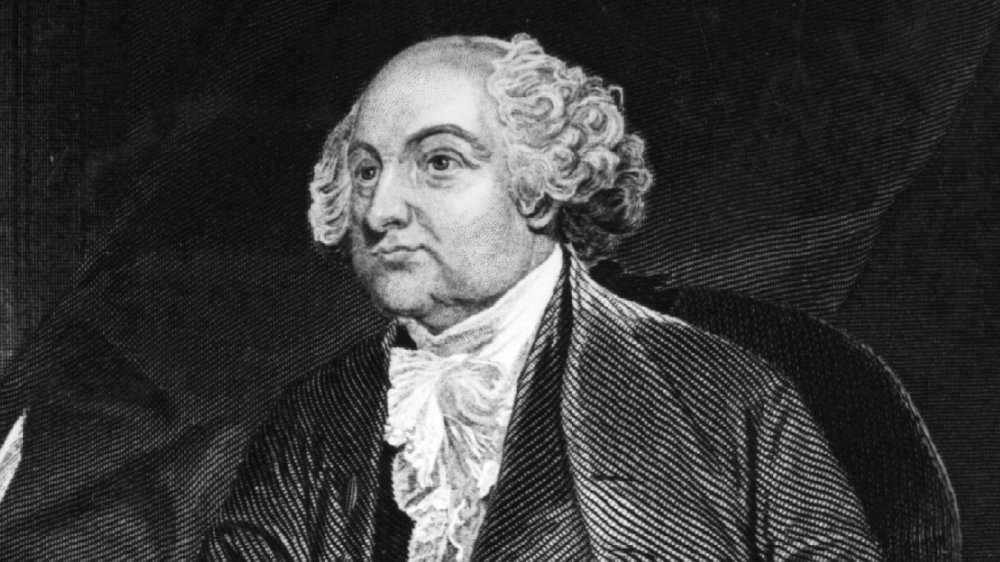The Truth About Thomas Jefferson And John Adams' Relationship
John Adams and Thomas Jefferson, the second and third presidents of the United States, helped lay the foundation of the country. They were also the best of frenemies.
Jefferson and Adams met during the Continental Congress in 1775, according to History. Adams personally chose Jefferson to draft the Declaration of Independence the next year. However, the two men actually had differing opinions on how the country should be run, per CNN. Adams believed in a central government, while Jefferson was a staunch supporter of states' rights, but U.S. presidents can be pretty weird people, and these differences seem to have have created a lasting connection. The two's fierce intellectual debates were likely only conducted in private, because Jefferson had stage fright.
The two grew closer when both served as diplomats in Europe, and the Adams couple even comforted Jefferson when his wife died. When both returned to the US, though, their friendship began to sour. Adams, by then the first vice-president of the US, was still a strong proponent of a central government. Jefferson was more and more concerned that states were being stripped of power. So, Adams joined the Federalist Party while Jefferson became a Democratic-Republican.
And that's when things progressively got worse.
Politics and the presidency ruined their friendship
Now on opposing parties, politics seeped into their relationship. When George Washington chose not to run for a third term, Adams and Jefferson ran against each other. Adams won the presidency and, by a quirk of law at the time, second-placer Jefferson became vice-president. However, the two men had a rematch in the election of 1800, and this campaign got ugly and desperate. Jefferson hired a journalist named James Callendar, History reports, to trash Adams' reputation. Callendar planted false stories of Adams wanting to attack France. Adams, meanwhile, may have started rumors of Jefferson having children with his slave Sally Hemmings, Smithsonian Magazine writes, before it was reported in the press. In the end, neither Jefferson and Adams clinched a majority of electoral votes, so Congress chose the winner. As the song from Hamilton goes, Jefferson sought Alexander Hamilton's endorsement, and he got it. Jefferson won, Adams left Washington, and the pair didn't speak for twelve years.
In 1812, though, they started writing to each other. For the next 14 years, says History, they hashed out their differences. On July 4, 1826, the fiftieth anniversary of the Declaration of Independence, both Jefferson and Adams died, in one of the most bizarre coincidences ever. As Adams lay dying, he allegedly said, "Jefferson survives." Thus, even in death, they remained best frenemies.

